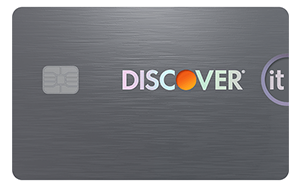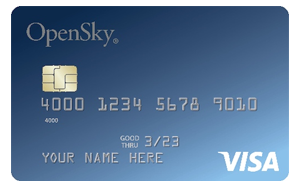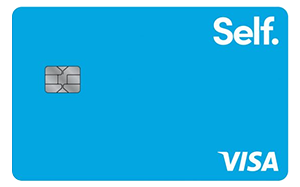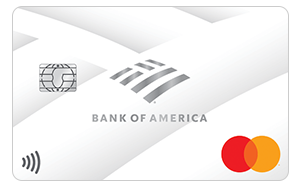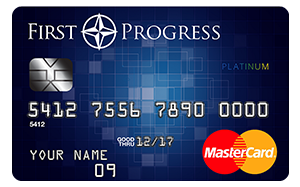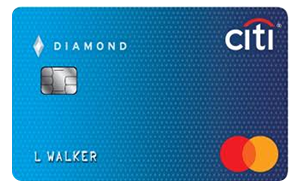If you have no credit score, you’re not alone. According to a Consumer Financial Protection Bureau report, 26 million Americans (approximately 11% of the adult population) don’t have a credit score. 1
But what does having no credit score mean for you? We’ll cover the implications of not having a credit score, why you might not have one, and what to do about it.
Table of Contents
Is having no credit the same as having zero credit?
Having no credit score doesn’t mean you have bad credit. It also doesn’t mean you have a credit score of 0 (zero)—this is just a credit score myth. In fact, it’s impossible to have a 0 credit score.
Both of the main credit scoring companies in the US (FICO and VantageScore) use a credit scoring range of 300 to 850, meaning that the lowest credit score you can have is 300. However, in reality, people rarely end up with a credit score that low.
Here are the reasons you might have no credit vs. why you might have a bad credit score:
- No credit: If you have no credit score, it just means that there’s not enough information in your credit file for a score to be calculated for you. This could be because you’re young, you haven’t been living in the country for very long, or you just haven’t used credit recently.
- Bad credit: On the other hand, having bad credit suggests that you’ve mishandled your credit accounts, such as by making late payments or overusing your credit.
Having no credit score is a stage that everyone passes through before developing their credit profile, whereas having bad credit only happens when something goes wrong.
5 reasons you may not have a credit score
If you don’t have a credit score, it’s either because you don’t have a credit report or the information in your credit report doesn’t meet the minimum requirements for generating a score.
Here are 5 possible reasons why you have no credit:
- You don’t have any credit accounts: If you’ve never had a credit account, such as a credit card or loan, then you might not have a credit report at all.
- You haven’t used credit in at least 6 months: Credit accounts that have been closed or inactive for more than 6 months are considered “stale.” If you only have stale data in your credit reports, FICO won’t generate a credit score for you. 2 However, VantageScore might. 3
- You have a “thin” credit file: If your credit report shows very few credit accounts, you may be classified as having a thin credit file. FICO won’t give you a credit score below a certain threshold, although VantageScore will.
- You only recently applied for your first account: If you just recently applied for a new credit account, you won’t have a FICO score until the account is 6 months old. VantageScore will immediately score you as soon as the account appears in your report, but it may take your lender time to report your activity to the credit bureaus.
- Your lender isn’t reporting your account activity: Lenders aren’t required to report to the credit bureaus at all. Even if they do, they might not report to all three credit reporting agencies, meaning you might have a credit score with one or two bureaus but not all three.
Can you have a credit report and no credit score?
Yes, you can have a credit report but no credit score. This is difference between being “unscorable” or “credit invisible,” which mean different things in the credit industry: 1
- Credit invisible: You have no credit reports and no credit activity that’s been reported to the credit bureaus This also means you have no credit score.
- Unscorable: You may have a credit report, but you still have no credit score. This means the information in your credit report doesn’t meet FICO’s or VantageScore’s minimum scoring requirements.
It’s important to remember the distinction between your credit score vs. credit report. Both are used to assess your creditworthiness, but you need a credit report in order to get a credit score.
Why having a credit score is important
It’s not necessarily a bad thing if you have no credit score. However, it could cause problems for you since many aspects of modern life depend on credit scores.
Below are a few things that may require a credit score:
- Credit cards and loans: Lenders use your credit score to assess your creditworthiness. If you have no score, lenders may be less willing to extend credit to you because they’ll consider you to be a risky borrower.
- Apartment leases: Landlords often have credit score requirements for renting an apartment. If you don’t have a credit score, they may require you to have a cosigner or co-applicant.
- Jobs: Employers can’t see your credit score, but they can view your credit reports. 4 If they don’t contain enough information for your employer to confirm that you’re a responsible borrower, they might not consider you for high-security or financial positions.
- Insurance: Many insurance companies run credit checks to determine your monthly premium. You might end up paying more for insurance policies if you don’t have a credit score.
- Cell phone plans and utilities: Many utility companies and cell phone service providers run credit checks before agreeing to offer you service, and if you don’t have a credit score, they might require you to put down a deposit.
Is using credit really necessary for your financial wellbeing?
Some people choose not to use credit so that they can avoid financial obligations and not worry about paying different creditors each month. If you have problems controlling your spending, then you may be better off using cash instead of credit cards and not applying for new loans. You can still build credit without opening credit accounts.
How to get a credit score
If you have no credit score and want access to get loans and credit cards with low interest rates and high credit limits, you need to start building credit.
Whether you’re starting your credit journey later in life or want to begin building credit right away at 18, there are several approaches with no credit score requirements that you can take to finally become scorable.
Open a new credit account
The simplest way to become scorable is to open a new credit account so that the tradeline is added to your credit reports. However, it can be hard to get an account if you have no credit score.
This is the catch-22 of credit-building: it’s hard to get credit if you’ve never had credit before.
Fortunately, there are credit accounts designed specifically for building credit when you have no credit history or you have bad credit:
Credit-builder loans
As the name suggests, credit-builder loans are specifically designed for improving your credit score. Unlike traditional installment loans (like personal loans, auto loans, and student loans), credit-builder loans go straight into a secured bank account instead of your wallet. You’ll still repay the loan amount over a fixed period, but your lender will only give you access to the funds once you’ve made all your payments.
Secured credit cards
Unlike unsecured credit cards, secured credit cards require a security deposit, which will serve as your credit limit and as collateral that your credit card issuer can keep if you don’t make your payments. This makes the card less risky for your lender, which means they might offer it to you even if you have no credit.
We’ve listed some noteworthy secured credit cards (as well as other cards meant for borrowers with no credit who are just starting out) below.
| Credit Card | Best For | Credit Score | Annual Fee | Welcome Bonus | |
|---|---|---|---|---|---|
| Secured Overall | 300–669 | $0 | Cashback Match | ||
| No Credit Check | 300–669 | $35 | |||
| Beginners | 300–669 | $25 | |||
| No Annual Fee | 300–669 | $0 | |||
| Bad Credit | 300–669 | $49 | |||
| Rebuilding Credit | 300–669 | $0 | |||
| Credit Card | Best For | Credit Score | Annual Fee | Welcome Bonus | |
|---|---|---|---|---|---|
| Secured | 300–669 | $0 | Cashback Match | ||
| Unsecured (No Deposit) | 300–669 | $39 ($0 for the first year if you set up autopay) | |||
| Beginners | 300–669 | $49 | |||
| Students | 580–739 | $0 | Cashback match | ||
| No Annual Fee | 300–669 | $0 | |||
| High Approval Odds | 300–669 | $35 | |||
| Building Credit | 300–669 | $0 | |||
| Credit Card | Best For | Credit Score | Annual Fee | Welcome Bonus | |
|---|---|---|---|---|---|
| No Credit Overall | 300–669 | $0 | Cashback Match | ||
| Starters | 300–669 | $49 | |||
| Students | 580–739 | $0 | Cashback match | ||
| No Credit Check | 300–669 | $35 | |||
| No Annual Fee | 300–669 | $0 | |||
| Unsecured (No Deposit) | 300–669 | $75 for the first year ($48 after) | |||
| High Credit Limit | 300–669 | $39 ($0 for the first year if you set up autopay) | |||
| Instant Approval | 300–669 | $75–$99 the first year, then $99 annually | |||
| Beginners | 300–669 | $0 | |||
As long as you make all your payments as specified in your credit agreement, you’ll build a credit history and eventually obtain a credit score. From there, you’ll be able to apply for unsecured forms of credit.
Have your rent and bill payments reported
If you want to get a credit score but you don’t want to open a credit account, you can get credit for the bills you’re already paying, such as your:
- Rent
- Utility bills
- Phone bills
- Streaming service payments (e.g., Netflix)
To build credit from your rent payments, you can sign up for a rent-reporting service, such as Rental Kharma, LevelCredit, or PayYourRent—although bear in mind you might need your landlord’s approval first.
To get credit for your other bills, you can either sign up for a paid bill-reporting service or sign up for Experian Boost free of charge to have your on-time bill payments added to your Experian credit report. (This service is specific to the Experian credit bureau, so it won’t benefit your TransUnion or Equifax credit scores.)
Boost your credit for FREE with the bills you're already paying

Boost your credit for FREE with the bills you're already paying
- Experian Credit Report and FICO® Score updated every 30 days on sign in
- Instantly increase your credit scores for FREE with Experian Boost™
- Daily Experian credit monitoring and alerts
Become an authorized user
When you become an authorized user on someone else’s credit card, the primary cardholder’s credit history (both positive and negative) is added to your credit report.
If you have a family member or close friend who you trust and who already has a good credit score and a good payment history, ask them to add you to their account. As long as the credit card company reports authorized users to the credit bureaus—which you should confirm before committing—you’ll quickly become scorable.
Takeaway: Having no credit score means that there’s not enough information in your credit reports to assess your creditworthiness.
- Having no credit score isn’t the same as having a zero credit score or a bad credit score.
- Credit scores are calculated based on data in your credit reports, and you’ll only be given a score if your credit information meets FICO’s and VantageScore’s requirements.
- You can have a credit report even if you don’t have a credit score.
- Not having a credit score isn’t necessarily a bad thing, but it can cause inconvenience because credit scores affect many aspects of modern life.
- To get a credit score, you can open a new credit account (like a secured credit card or credit-builder loan), report your rent or bill payments, or become an authorized user.

